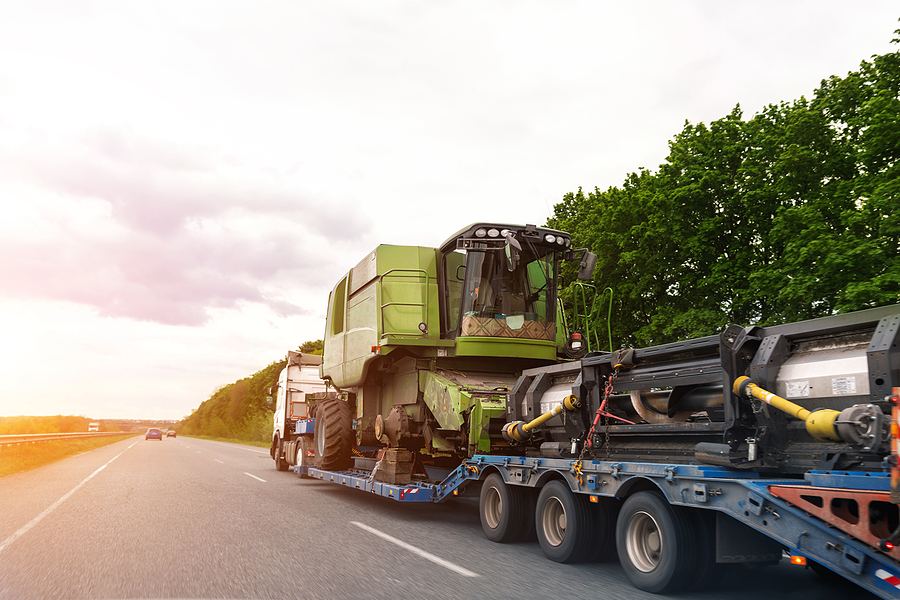Moving massive machinery across cities, states, or even countries requires more than just a standard truck and trailer. Heavy equipment transport is a specialized field that demands expertise, proper equipment, and meticulous planning to ensure your valuable assets arrive safely at their destination.
Whether you’re relocating construction equipment to a new job site, moving agricultural machinery between farms, or coordinating a complete fleet relocation, understanding the complexities of heavy equipment transport can save you time, money, and significant stress. The right transport service doesn’t just move your equipment—it provides peace of mind through every mile of the journey.
Heavy haulers face unique challenges that standard freight companies simply aren’t equipped to handle. From navigating weight restrictions and obtaining special permits to securing oversized loads properly, professional heavy equipment transport services manage the intricate details that ensure your machinery reaches its destination without incident.

Types of Heavy Equipment Transported
Heavy equipment transport services handle an impressive variety of machinery and oversized loads, each presenting its own set of challenges and requirements.
Construction Equipment
Bulldozers, excavators, and cranes form the backbone of construction projects worldwide. These machines often need to move between job sites quickly to maintain project timelines. Professional heavy equipment towing services understand the specific requirements for securing construction equipment, including proper weight distribution and protection from road debris during transport.
Agricultural Machinery
Tractors, combines, and harvesters require careful handling during transport, especially when moving between farms or to dealerships. Seasonal demands often create tight schedules for agricultural equipment relocation, making reliable transport services essential for farming operations.
Mining Equipment
Large mining trucks and drilling rigs represent some of the most challenging oversized load transport scenarios. These massive pieces of equipment often exceed standard road limits and require extensive route planning and escort vehicles to ensure safe passage.
Industrial Machinery
Generators, transformers, and manufacturing equipment support critical business operations. Industrial machinery transport often involves precise timing to minimize production downtime, making reliability and efficiency paramount concerns.
Specialized Equipment
Military equipment like tanks and armored vehicles, wind turbine components, bridge sections, and even large boats and yachts all fall under the heavy equipment transport umbrella. Each category requires specialized knowledge and equipment to handle safely.
Factors to Consider When Choosing a Transport Service
Selecting the right heavy equipment transport service requires careful evaluation of several critical factors that directly impact the success of your move.
Experience and Expertise
Look for companies with extensive experience in transporting equipment similar to yours. A service provider familiar with your specific type of machinery understands the unique challenges and requirements involved, from proper loading techniques to route planning considerations.
Equipment and Capabilities
Verify that the transport company has the specialized equipment necessary for your oversized load towing needs. This includes appropriate trailers, rigging equipment, and escort vehicles. Companies handling fleet towing should demonstrate the capacity to manage multiple units simultaneously.
Safety Record and Insurance
A proven track record of safe transport is non-negotiable when dealing with valuable heavy equipment. Review the company’s safety statistics and ensure they carry adequate insurance coverage to protect your assets during transport.
Route Planning and Permits
Professional heavy haulers handle the complex permit process for oversized loads and plan routes that avoid low bridges, weight-restricted roads, and other obstacles. This expertise prevents costly delays and potential damage to your equipment.
View Our Heavy Equipment Hauling Services
Regulations and Compliance in Heavy Equipment Transport
Heavy equipment transport operates under strict federal and state regulations designed to protect both the equipment and public safety on our roadways.
Weight and Size Limitations
Standard highway limits typically allow loads up to 80,000 pounds gross vehicle weight, 8.5 feet wide, and 13.6 feet high. Equipment exceeding these dimensions requires special permits and may need escort vehicles or specific travel times.
Permit Requirements
Oversized load transport requires various permits depending on the route and equipment dimensions. Professional transport services handle this paperwork, ensuring all necessary permits are obtained before transport begins.
Hours of Operation
Many jurisdictions restrict when oversized loads can travel, often prohibiting movement during peak traffic hours or adverse weather conditions. These restrictions require careful scheduling to meet delivery deadlines.
Driver Qualifications
Heavy equipment towing demands specially trained and certified drivers who understand the unique handling characteristics of oversized loads. Qualified drivers are essential for safe transport operations.
How to Prepare Your Equipment for Transport
Proper preparation significantly impacts the safety and success of your heavy equipment relocation.
Equipment Inspection
Conduct a thorough inspection before transport, documenting any existing damage with photos. This creates a baseline for insurance purposes and helps identify any transport-related issues upon delivery.
Fluid Management
Reduce fuel levels to approximately one-quarter tank to minimize weight while ensuring sufficient fuel for loading and unloading operations. Check for and repair any fluid leaks that could create safety hazards during transport.
Securing Loose Components
Remove or secure any loose attachments, mirrors, or accessories that could be damaged or lost during transport. Store these items separately or ensure they’re properly secured to the main unit.
Documentation Preparation
Gather all necessary paperwork, including ownership documents, maintenance records, and any special handling instructions. Clear documentation streamlines the transport process and prevents delays.
Cost Factors Involved in Heavy Equipment Transport
Understanding the variables that influence heavy equipment transport costs helps you budget accurately and make informed decisions about your transport needs.
Distance and Route Complexity
Longer distances naturally increase costs, but route complexity can have an even greater impact. Routes requiring special permits, escort vehicles, or significant detours will affect the final price.
Equipment Size and Weight
Larger, heavier equipment requires more specialized trailers and may need additional permits or escorts. These requirements directly influence transport costs.
Timing and Urgency
Standard scheduling typically offers the best rates, while rush jobs or specific delivery requirements may carry premium pricing. Planning ahead helps minimize costs.
Additional Services
Services like loading assistance, equipment inspection, or storage during transport add value but also increase costs. Transparent pricing ensures you understand exactly what services you’re receiving.
Final Thoughts
Heavy equipment transport doesn’t have to be stressful when you partner with experienced professionals who understand your unique needs. The right transport service combines specialized equipment, regulatory expertise, and comprehensive planning to deliver your valuable machinery safely and on schedule.
Success in heavy equipment relocation comes down to three key elements: choosing a service provider with proven experience in your equipment type, ensuring proper preparation before transport, and maintaining clear communication throughout the process. Companies that offer dedicated customer support and transparent pricing create partnerships that extend beyond a single transport job.
Ready to move your heavy equipment with confidence? Zore’s Indy brings years of experience in handling construction, agricultural, mining, and industrial machinery across the country. We manage every detail from permits and route planning to safe loading and delivery, ensuring your equipment arrives in perfect condition.
Get a Free Transport Quote Now
Related Post: Cost Saving Tips for Transporting Heavy Equipment

